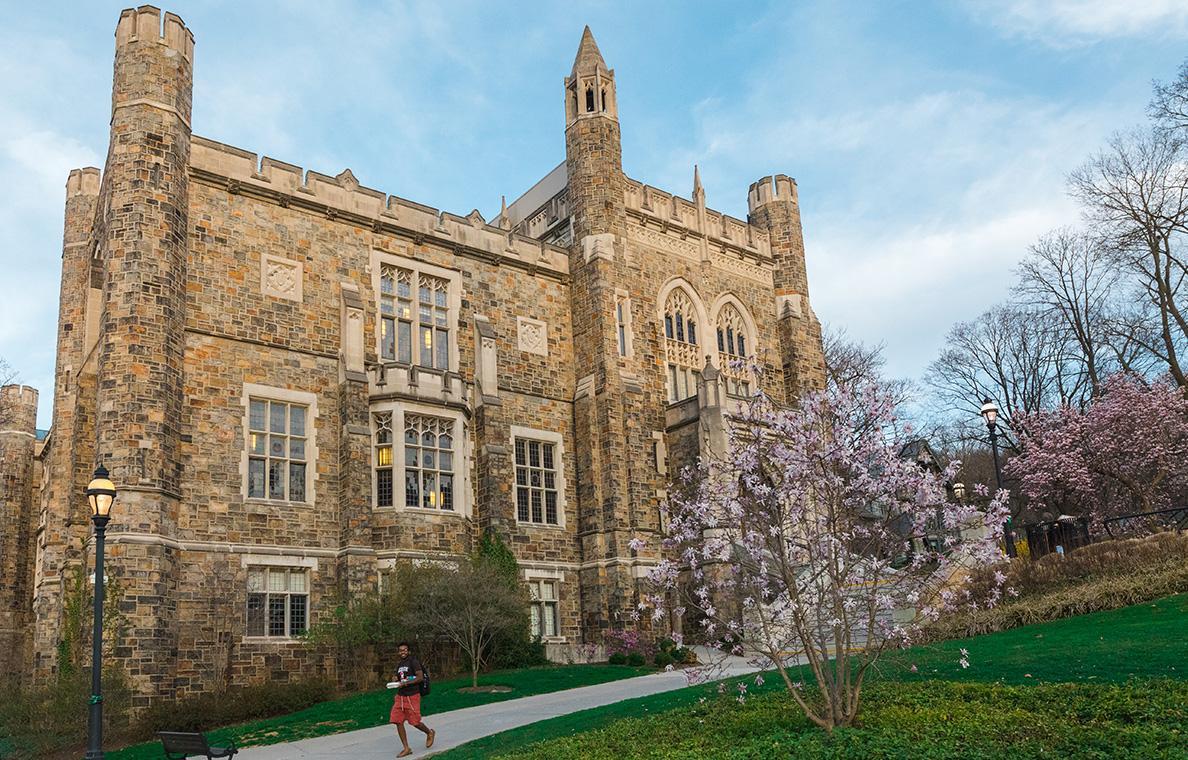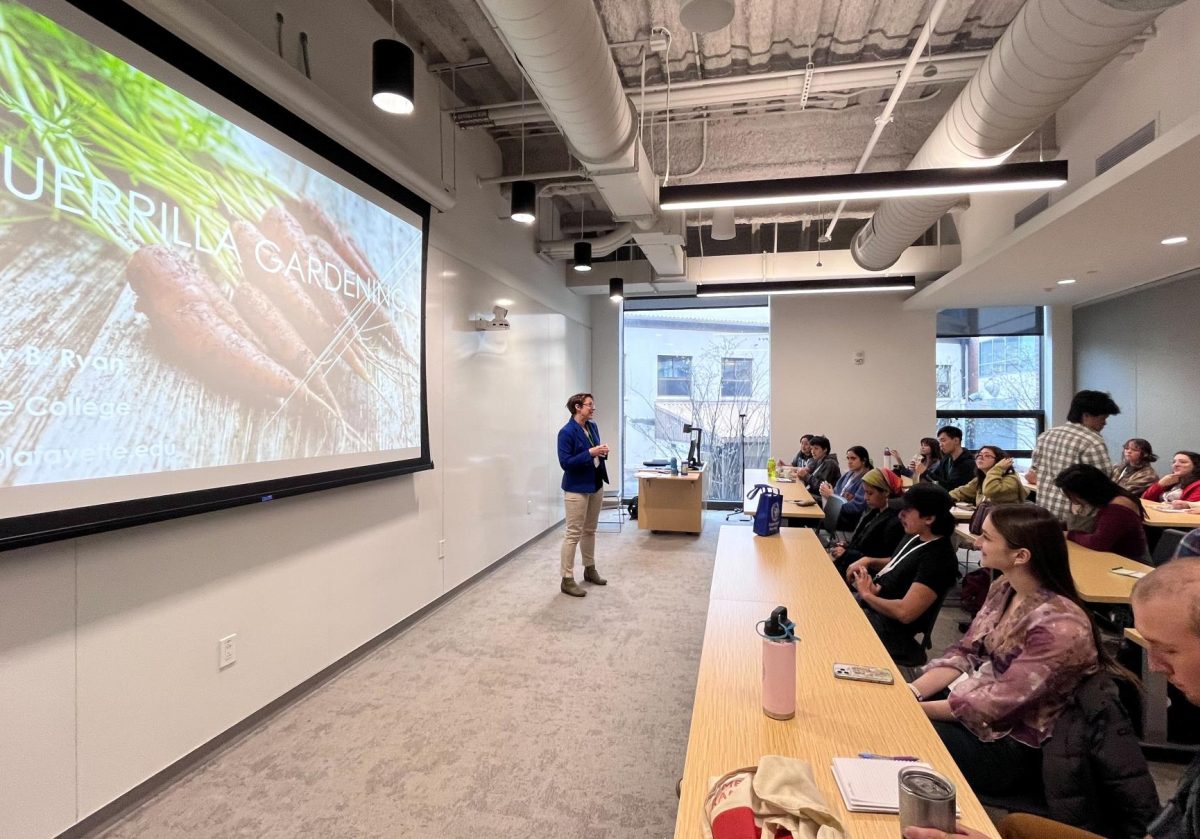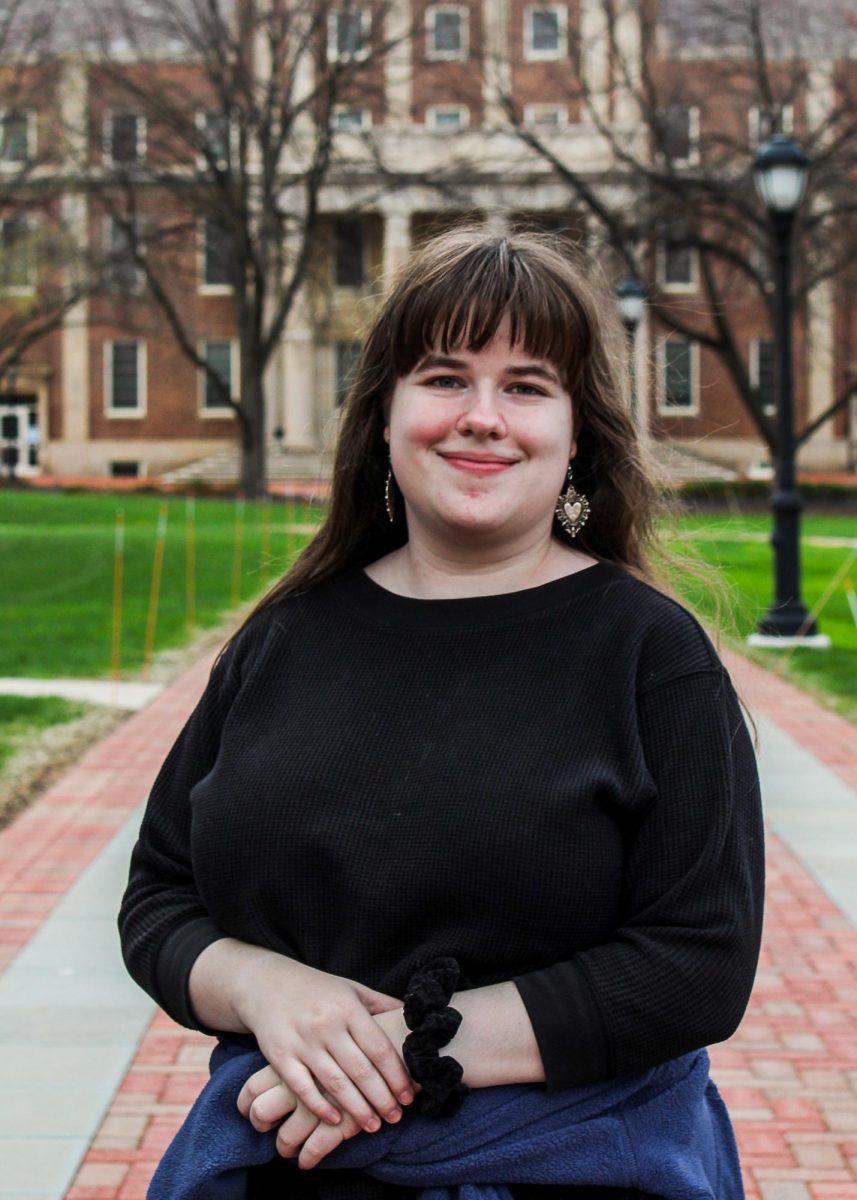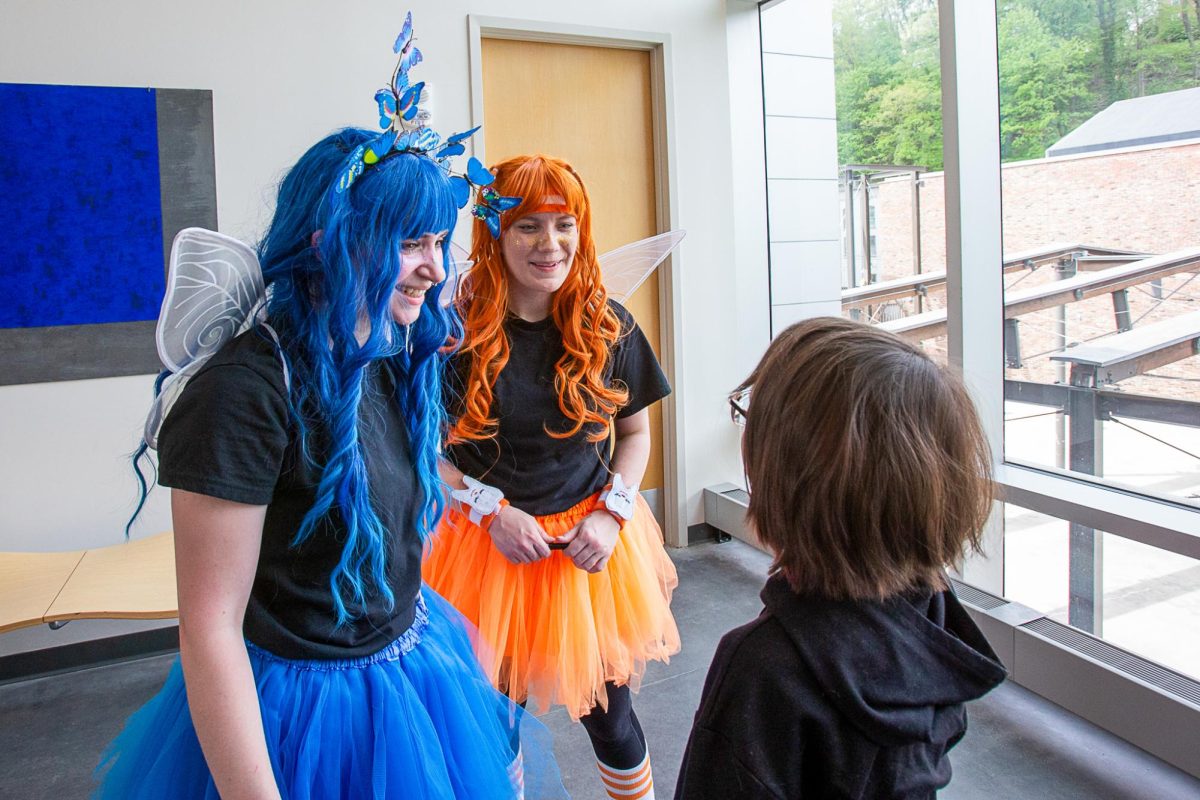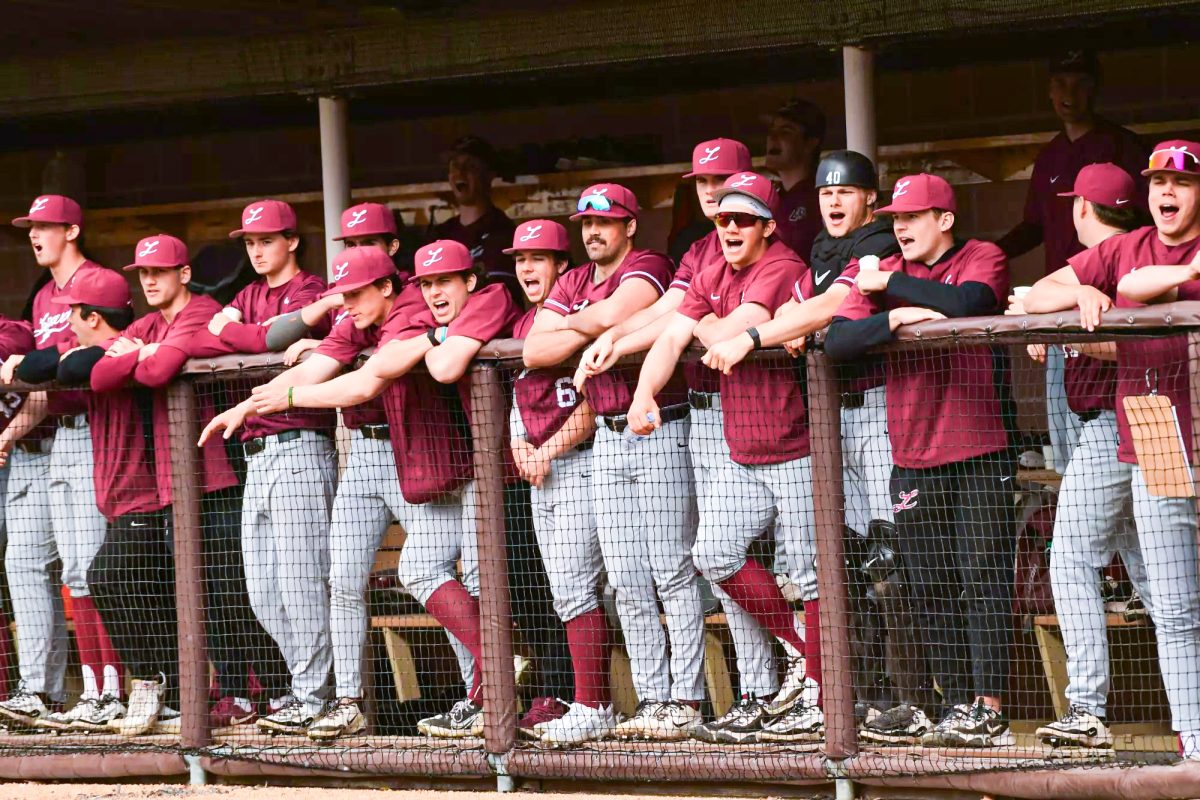Lafayette College hosted the third annual Northeast Student Food and Farm Conference on April 5, welcoming over 100 students, farmers and food justice advocates from across the region.
“Everyone approaches agriculture and farming differently, so by having these other colleges come to Lafayette, they can see our systems and our infrastructure firsthand,” said Harrison Zoller ‘27, who was heavily involved with planning the conference, which he said began last summer.
The day-long event, previously hosted at Penn State University, featured round-robin sessions where students from various institutions presented their initiatives and research, along with expert food justice advocates from across the region.
“We have such a robust student farm program, so our college in particular is a good spot to help promote the visibility of that,” said Ben Cohen, the faculty organizer for Lafayette Food and Farm Cooperative, the organizer of the event.
Students from other institutions traveled to Lafayette to participate in the conference and emphasized the value of connecting with peers from different institutional settings.
“I know what Penn State is like already, I know how our farm works and how our food systems are,” said Jaennae Overton, a freshman Penn State student. “So getting to hear from other people and share ideas, I think that’s pretty cool.”
The focus of the conference was food justice, allowing expert panelists to share insights on the correlation between agriculture and social justice issues.

“Food justice is such a complex topic, but it is justice for everyone who touches the food system, and justice for everyone in those interactions,” said Amirah Mitchel, a panelist and local farmer.
Mitchell is the founder of Sistah Seeds, a seed business dedicated to preserving culturally important crop varieties while empowering Black farmers and growers.
“Can we ever have food justice if we don’t have land justice?” Mitchell asked the audience. “Can we ever have food justice if we don’t have climate justice?”
Mark Reid from Easton Garden Works was among the panelists and reflected on the changing social landscape of farming during the panel discussion.
“I’m seeing more minorities in farming, I’m seeing more women in farming,” Reid said. “So that’s gonna keep the next generation moving along if we support it.”
Beyond the panel discussions, the conference also provided a platform for students from varying schools to share their own initiatives. Students involved in Lafayette’s Food Recovery Network chapter, an organization focused on reducing food waste, presented research about challenges they faced in balancing food waste reduction with addressing food insecurity.
“In an ideal world, there would be no food waste,” Lauren Karwacki ‘26 said. “We talked about navigating the challenges in moving toward that goal.”
The conference created valuable connections between students and established farmers across the Northeast.
“It’s a very small community,” Zoller said. “What you learn at these conferences is how close-knit the farming community is, and that’s where the real value comes from.”



